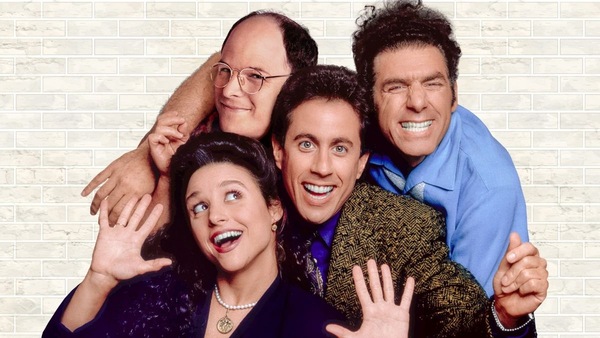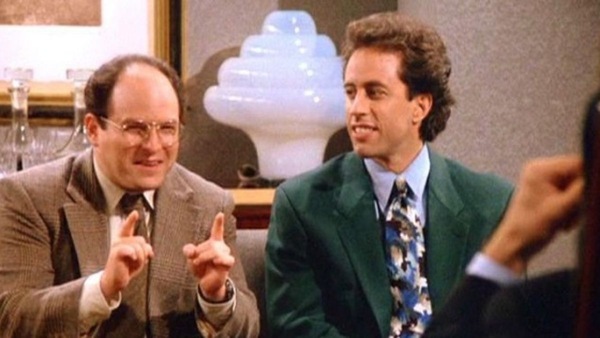How Seinfeld, now streaming on Netflix, altered the sitcom landscape
Seinfeld burst into the TV screens in 1989 as a sitcom about nothing. As the series arrives on Netflix, here’s looking at what made this show into the phenomenon it is today.

Last Updated: 12.44 PM, Oct 20, 2021
Seinfeld has claimed a ubiquitous status in the annals of pop culture. No wonder even 32 years after its debut in NBC, the 180-episode, nine-season show about “nothing” remains the best-written sitcom in TV history according to the Writers Guild of America. It effectively altered how people consume television. It proved a show without pressing social themes or important issues could also become a cultural touchstone.
The show centred on the lives of four narcissistic friends — Jerry (Jerry Seinfeld), Elaine (Julia Louis-Dreyfus), George (Jason Alexander), and Kramer (Michael Richards) – and how they navigate the quotidian challenges of life in New York.
It was the perfect ensemble story. In each episode, every character had a different arc that was fully realised by the end of the episode. Further, the characters themselves were realistic and flawed. The other shows of the time were limited by their aim to make their characters’ lives and the stories aspirations. That characters need not be particularly likeable for them to resonate with viewers altered the landscape of TV shows forever
Take, for example, George. He was evidently a self-involved jerk who believed his mere identity as a white cis male in the US, he is superior to most and deserves the attention of a woman. But the show did not justify his acts. Instead, it highlighted George’s characteristic flaws as flaws, taking frequent digs at his inability to rationalise.
Similarly, none of the group members is remotely affected by Susan’s death. In fact, George is heard saying if they should get coffee by the end of the episode. We realise for these self-obsessed jerks, not even the death of a person close to them is incentive enough to empathise with others. In fact, George even goes on to use the death of his fiancee as a peg to impress more women. Ouch!

Almost as a homage and a callback to the characters’ signature indifference, the finale sees Jerry having the same conversation about shirt buttons that took place in the pilot episode. The first episode saw Jerry making a remark about the second button on a shirt making or breaking the overall look. While in jail in the series finale, Jerry again reminds George of his observation, to which George nonchalantly responds saying they have had a similar discussion before. Their world-weariness is palpable, as even being confined in a prison does not make fret with fear.
For a show that is famously about “nothing,” Seinfeld, in its offhandish way, also dealt with major issues like marriage, death and terminal diseases. Elaine was determined to not have her own kids. She obliquely mentioned that her friends were dismissive of her because she wasn’t a mother, acting like “having a baby takes some kind of talent." The discourse seems particularly relevant in today’s context, with abortion laws getting more suffocating globally.
It was also infinitely clever, both in writing and execution. In the episode tile The Contest, the four characters place a wager about who could go the longest without masturbating. Only, not once did the episode spell the word out. It was credited for coining the phrase “master of my domain.” In another self-referential episode titled The Pitch, Jerry tells George, “So we go into NBC and tell them it’s a show about nothing. They ask, ‘What’s the show about?’ and we say, ‘Nothing.’ … I think you may have something here!”
Seinfeld never enjoyed the kind of acceptance Friends found in India. A reason for this could be the show’s refusal to entertain the prospect of comfortable resolutions with hugs and tears. While Friends was aspirational, Seinfeld looked at the drudgery of everyday existence without the rose-tinted glasses. Effectively then, it was a much audacious enterprise than any of the “white single people of New York” shows succeeded Seinfeld. With an absurd, wacky and often unpalatable narrative, Seinfeld chronicled the lives, not of heroes, but the fallen ones.

